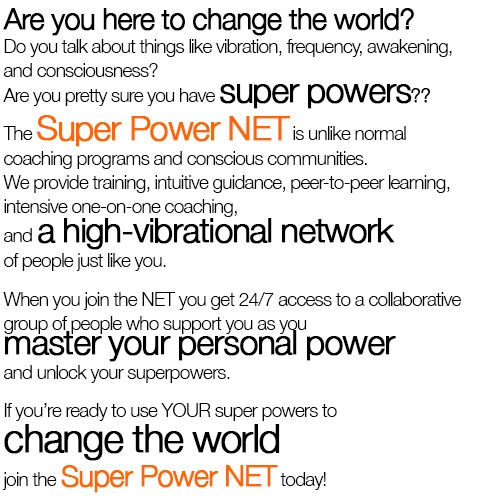
Hello everyone. This is Tonya Dawn Recla, your Super Power Expert. I’m really, really excited today about this show. We have with us today, Claudette Rowley, who’s going to help us flesh out the power in the, you know, what the corporate, organizational culture conversation can really do in your business. I know a lot of times as entrepreneurs we get started and we’re driven by what we’re passionate about, and we want to do good things in the world, and all this stuff. But, there are some just tried and true steps that businesses follow, that corporations had to follow even at the inception point, that allowed for that level of success.
I really appreciate the conversations where we can kind of drill down, and just get serious about the nuts and bolts, and things that have to be there. What’s beautiful about the culture conversation is that it rests on some really foundational business principles, but you get to develop it however you want to, right? There is a creative aspect to this. I think as entrepreneurs, a lot of time we resist anything that feels too stifling. But, I’m going to invite you to look at developing an organizational culture from a very different lens during this conversation.
We’re talking today about, entrepreneur success starts with culture. Claudette’s going to help us kind of feel into how we go about that, how we can start with it, and really what the benefits are of looking at it through that lens. She has such an impressive resume. She’s CEO of Cultural Brilliance, she’s a Cultural Design and Change Management Consultant. She’s the author of Cultural Brilliance: The DNA Of Organizational Excellence. But, we’re talking decades of a wealth of information that she brings into this dialogue. I’m going to invite you to just take a breath, sit down, relax, listen to the conversation, and see how it fits into everything that you’re creating in your business. Claudette, welcome to the show. Thank you so much for joining us.
Oh, great. Thanks so much, Tonya, so glad to be here. Excited about our conversation.
I am too. I’m a little bit of a geek when it comes to the business building process, and I love my systems and my processes, and looking at what works, and adaptability, and mutations, and everything. But, at the heart of it, we always kind of come back to this cultural conversation like, what do we stand for, type of dialogue.
Before we get too far into that, I want to know a little bit more about you. We’ll start with just asking, what are your super powers?
What a great question. It’s a fun one, isn’t it? What are your super powers?
I think so.
Yeah, yeah. I mean, I think one of my superpowers is helping to solve complex problems, which is one of the reasons why I’m so interested in culture.

I’m one of those people that if there’s not a problem to solve, I have to be careful not to create one.
Yeah.
I’ve always really loved problem-solving. I’m one of those people that if there’s not a problem to solve, I have to be careful not to create one.
I love that you acknowledge that.
Yeah, energizing for me and I really, over the course of my professional career, the complex people problems, the complex systems problems, and cultural problems are really the ones that I.. I love to solve and I would say that’s definitely a super power for me.
Oh, I agree completely, and it keeps me entertained. I like that you acknowledge that you may have a tendency to create it if there isn’t something to solve. It’s beautiful that you have that level of self-awareness and can call it out. Because I do think a lot of us are driven by that, right? We find our little comfort zones, and the things that we’re good at, and things that excite us and then if we’re not careful that becomes this myopic kind of perspective on things. I know it’s easy to do in the entrepreneur arena.
So let’s talk a little bit about the book and then we’ll tie it back into the entrepreneur stuff. So tell me a little bit about how the book idea came about and the based on the years and years of experience that you have. Share a little bit with our listeners about that.
Sure. Yeah, the book is called Cultural Brilliance: The DNA of Cultural Excellence and it came about a few. It was recently published, actually just a couple of months ago, but the seed of inspiration was about two and a half years ago and it was really around my desire to have a new challenge in my career and when I started to look back at everything that I’d done, I realized that I was always really interested in culture, corporate culture. Up until five, 10 years ago, it wasn’t something that we talked about very much, right? You really weren’t supposed to talk about it. Interestingly, as an organizational development consultant conventional wisdom was if you talked to an organization about culture, they wouldn’t hire you.
How interesting.
So you’d talk about communication. You’d talk about productivity. You’d talk about other things. Yeah, it was really interesting. And so I finally said, “No, let’s talk about the truth and the truth is culture.” Yeah, because one of my other superpowers is truth-telling.
Oh, I love it.
So let’s talk about the truth. So that’s really how the book was born and it ends up being a roadmap for any kind of organization. It doesn’t have to be a company, any kind of an organization to really transform their culture, to understand that you have a step by step process for doing it and to really create a culture that I call a brilliant culture, and really, cultures that are really using the potential.

It’s really a win-win to improve your culture.
What I noticed was that so many organizations would leave all this potential on the table in the form of their culture. They could have such a better culture and they wouldn’t most likely because they didn’t know that they could or how to do it. And we know how much that hurts people, how much people aren’t themselves or their best selves and productivity would be down. Innovation would be down. Trust would be low. There would be all of these indicators that there were cultural issues and what I noticed is when you resolve some of those, the company got so much more successful and the people were happier. They were more supported. They were doing better work, etc. It’s really a win-win to improve your culture.
Yeah, I’d imagine you and I could probably talk for days about some of the issues and the inherently complex nature of a concept like culture and where we got some of that from. Prior to moving into the counter-intel arena, I’d been diving around the human psyche for quite a long time and prior to that, my Masters was in a field of research that really looked at social identity dynamics and how we all relate to concepts like culture and it really does wreak havoc and bleeds over into organizational structure and everything else because we carry all of that, in our verbiage, through the collective conscious. We have all of these really warped and damaging stories around self-definition, cultural definition, group definition, all of this stuff. So I understand why that would have been a prevalent thought, and I applaud you for piercing through and saying, “Okay, forget this.”
We took a similar route with the whole superpower conversation. We were cautioned really early on to use a word like “power” especially if our main client base, and at that time it was predominantly female. Well, I did like what you did. Okay, well, let’s instead take a look at this and see what is it about this word that really is not appealing, doesn’t want to make people want to dive in, the rabble-rousers or whatever, kind of fleshing out these concepts. Because there is a wealth of knowledge and potential success embedded within all of them, I think. So you’re a kindred spirit in that regard, so I appreciate that.
We’re going to take a quick break. Before we do, though, why don’t we tell people where they can go to find out more about you?
Yeah, I’m happy to, thanks. My website is culturalbrilliance.com and you can find out more about me and my business and the book, all on the website.
Beautiful, beautiful. We’ll have links on the page also, folks, so stick with us. We’re going to take a quick break. We’re talking with Claudette Rowley today about entrepreneur success starts with culture.
You’re going to want to stick with us because when we come back from the break, we’re going to talk about how you can start to think about these things in your business or perhaps you think you have a culture that’s working for you and I’d imagine Claudette’s going to be able to give us some tips on, perhaps, how you can make that even more brilliant. So stick with us and we will be right back.
To listen to the entire show click on the player above or go to the SuperPower Up! podcast on iTunes.
Podcast: Play in new window


